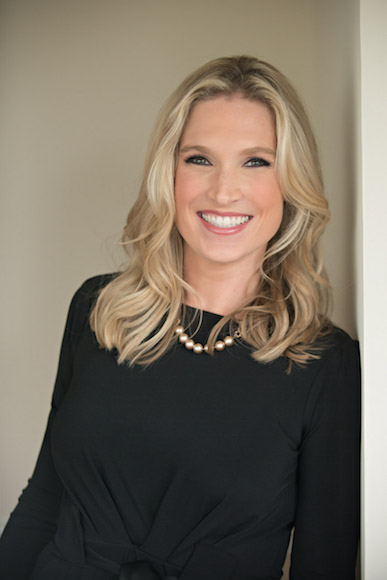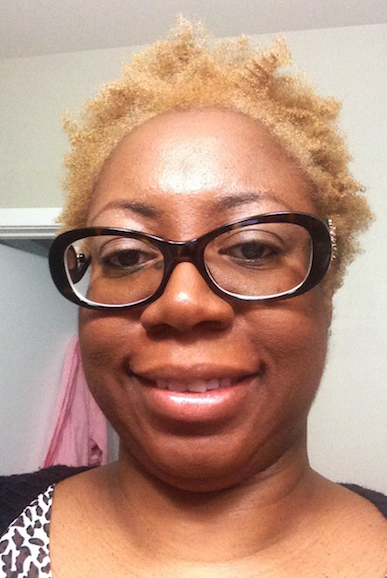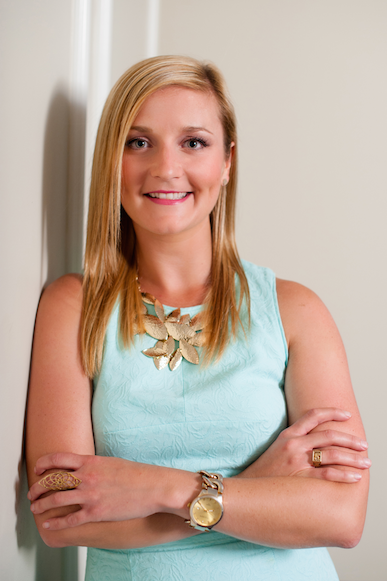Women in D.C.'s tech scene aren't going anywhere. Here are three (and trust us, it was hard to pick just three) making a splash.
Women in tech in D.C. aren't going anywhere. We’ve spent some time on these pages covering some amazing founders over the past two and a half years—
Donna Harris,
Carla Valdes,
Glennette Clark,
Shavanna Miller,
Sara Capra and Veronica Eklund,
Denise Tayloe,
Elizabeth Bennett, and many, many others.
Here are three more Superwomen in Tech—a social marketer for one of D.C’s hottest startups, the president of DC Web Women, and the assistant director for open innovation in the White House
Office of Science and Technology Policy—that "get it." They know that they are working in male-dominated industries. They go to work every day and do their jobs. They network. But they take the time to connect with other people—particularly other women, sometimes in a volunteer capacity—to ensure that the people they meet get what they need. And the tech scene is better because of them.
"
Be willing to serve and get things done."—Shana Glenzer

Shana Glenzer, 34, is a D.C. tech scene maven. During the day, she serves as Social Radar's VP of social marketing. After business hours—which are not always 9–5, since Social Radar is technically a startup—Glenzer divides her free time among networking groups like
DC Tech Meetup and the newer
DCFem Tech group. She is also an advisor for the new-in-D.C.
Vinetta Project, "a way of connecting female entrepreneurs with insight and connections that can help take their companies to the next stage of growth," Glenzer says.
In addition to volunteer work and her day job, Glenzer also pops up from time to time as a commentator on Fox Business News. She says that came about when she volunteered to host a tweet-up and moderate a panel.
"[Tech] is still a male-dominated industry. But progress is being made—both in the number of women in technical positions and women in leadership positions in tech companies and on boards of tech companies—and founders of tech companies," Glenzer says.
Glenzer graduated from Messiah College in Pennsylvania with a marketing degree and then worked for several years in sales for a company that was later acquired by Pearson. From there, she was recruited to Blackboard, where she stayed for eight years, filling a variety of positions in sales and marketing. Glenzer credits Blackboard's company policies with allowing her to grow her skills.
"One of the things I loved about Blackboard," Glenzer says, "was that if you proved yourself to be successful in whatever role you were in, they would give you opportunities and chances that perhaps you—on paper—didn't necessarily deserve. But they could see that you had really invested in the company, and they in turn invested in and took a chance on you."
Another thing Glenzer took advantage of at Blackboard? Her colleagues' depth of knowledge and experience. "I spent [hours] with people who were much higher up than me, particularly at Blackboard [to find out] how they got to their position, what they loved about it, what they didn't love about it."
Now that she is regarded as an expert in the social marketing sphere, she advises others to learn from those around them. "Have as many conversations as you can with people that are doing things you want to. Make it regular—not just when you are looking for a job. It's an ongoing process, to continue to build yourself professionally."
As one might expect from someone who does social marketing for a living, Glenzer says she "loves making connections between people.
"I am constantly making intros for people. If I meet with someone, and I think that they are smart and that they have incredible potential and could help a company, I will introduce them to anyone that they ask. I think that's why people see me the way that they see me. I just want to help people find success and be happy in what they're doing, and by doing that, propel the DC tech scene."
"You don't have to come to tech in a traditional way."—Sibyl Edwards

Sibyl Edwards, 44, is the president of
DC Web Women, a 3,000-member organization dedicated to promoting and connecting women that work in technology or new media in the District. It is a volunteer position she has held for nearly five years. Edwards is also the executive director of
DC Innovates, a District-based nonprofit that supports diversity in tech companies. When not advocating for underserved populations in tech, Edwards works as a freelance interactive designer and digital media area strategist.
There has been an explosion of tech groups for women in the last few years—from
PyLadies,
Rails Girls DC and
Women Who Code are just a few. "How can we be welcoming to these new groups?" Edwards says. "There is plenty of room on the stage. There are still a lot of women out there having challenges. We're still getting paid less. We're still not getting the leadership roles. Things have improved, but we still have a ways to go. Having these groups is a great way to keep advocating for and supporting women in technology."
Edwards initially trained as a painter at the Corcoran College of Art and Design, but was an early adopter of the Web. "I had a Geocities page," she says. "I don't fully remember what it was about. I think I talked about art and music. I just did it to see if I could design it."
The fact that she could share her design with anyone who had an Internet connection "blew my mind," Edwards says. "Coming from an art background, if you create a painting, it's hung in a gallery or at a show, and people will appreciate it, but you have a very limited audience." With the Internet, Edwards says she could see "how it was going to revolutionize art and design."
In terms of obstacles she faces at work, Edwards says that her age and gender have been stumbling blocks for her as she has navigated the D.C. tech scene. "But even age more than gender," she explains. "Getting into tech was a second career for me. I got into it in my 30s. I'm sitting with my colleagues, [one of whom] might be a 24-year-old guy." She says the older women around the table wouldn't look at her as the tech authority in meetings. "They would look to him as the tech expert, even though I was the one mentoring him. They would ask him tech questions or look to him for reassurance [on answers]. I would expect it from men but I was really surprised—I saw a lot of that from women."
Edwards says she thinks that the older women acted that way because of "conditioning. We are slowly but surely changing that. I don't see that with young women. They're growing up seeing other women in tech. They're digital natives."
The good news is that Edwards believes that the "conditioning" is changing. "People are becoming more aware of their biases and are making more of an effort to check [them]," she says. "I like to educate people in my role as president of DC Web Women. If you're a woman, a woman of color, and you're older—that's three strikes. In tech, there's going to be a huge education piece to your role, whatever it is."
"Think beyond bench science."—Jenn Gustetic

As a child, Jenn Gustetic, 32, wanted to be the first woman on Mars. She hasn't gotten there yet, but she has landed in the White House, as the assistant director for open innovation in the White House
Office of Science and Technology Policy, a position she came to after spending two and a half years working at NASA as the agency's primary advocate, advisor and strategist for open innovation.
In the White House office, Gustetic is responsible for scaling the use of open innovation approaches, such as competitions and crowdsourcing, across the federal government. She is a connector, and uses her ability to communication across disciplines to "translate" messages between groups of people.
She got her undergraduate degree in aerospace engineering from the University of Florida, and during an internship, realized that "doing engineering design behind a computer every day was not the type of work I saw myself doing daily," Gustetic says. Another internship in policy led her to think about how engineers and policymakers could work together to understand and design policy. A master’s in technology policy from MIT soon followed. "It was a no-brainer," she says, of her decision to pursue the degree. "A combination of technology, business, law and public policy—it was like drinking from a firehose. You can't possibly take it all in."
She has the kind of "place at the table" that many women in STEM aspire to. Gustetic doesn't let her relative youth or gender hold her back. "You walk in confident, knowing what you bring to a conversation," she says. "When you do that, I have found that colleagues of any background or gender to be very receptive. I have not really experienced anything other than really great colleagues and teamwork. I do recognize that people bring implicit bias into the workplace…different biases that they're not even sure that they're executing or operating against. We know that that's real. Maybe sometimes I'm just oblivious. I listen to my colleagues and I expect to be listened to when it's my turn."
Gustetic also says that "two-thirds of the senior leadership at OTSP are women—very qualified, rockstar women who are accomplished in their own right."
To young women who might just be beginning their journey in tech, Gustetic reminds them to think beyond "bench science. You can be in a career in STEM in a lot of different ways," she says. Gustetic says that while, as a real rocket scientist, she could spend her time designing spacecraft, she prefers being a connector and working on relations between groups. "Those are sometimes seen as non-technical tasks, but they're critical tasks when combined in a technical environment to execute really transformative science and technology projects." Success, she says, "is a combination of studying a [STEM] discipline and [using] what skills you think are your best and what tasks and activities you want to see yourself doing every day—what you enjoy."